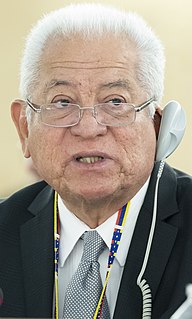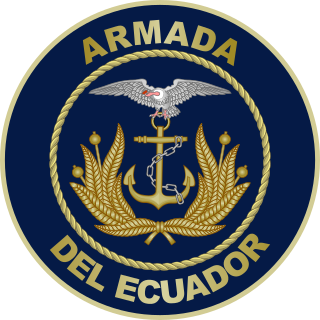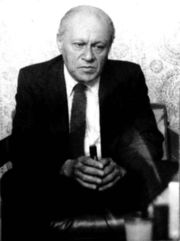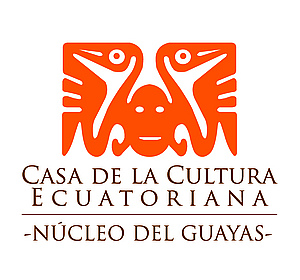Francisco Arízaga Luque, was an Ecuadorian poet, writer and politician. He was President of Ecuador from July 14, 1925 to January 10, 1926 as part of the First Provisional Government.
Pasillo is an Ecuadorian and Colombian genre of music extremely popular in the territories that composed the 19th century Viceroyalty of New Granada and Gran Colombia: Born in Gran Colombia, spread in the territory, especially Ecuador, and to a lesser extent in the mountainous regions of Venezuela and Panama. Venezuelans refer to this style of music as "vals".
Roberto Daniel Agramonte y Pichardo was a philosopher and Cuban politician.

Jorge Valero Briceño is the current Venezuelan Ambassador Extraordinary and Plenipotentiary Permanent Representative – designate for Venezuela to the United Nations in Geneva, Switzerland.
Fernando Jurado Noboa is an Ecuadorian psychiatrist, historian and genealogist.

BAE Abdón Calderón is a naval ship of Ecuador, built in 1885 and now preserved as a museum ship at Guayaquil.

The Ecuadorian Navy is responsible for the surveillance and protection of national maritime territory and has a personnel of 9,127 men to protect a coastline of 2,237 km which reaches far into the Pacific Ocean. The vessels are identified by the ship prefix B.A.E.: Buque de la Armada del Ecuador.

Ahmed Mulay Ali Hamadi is the current Sahrawi ambassador to Mexico, with a base in Mexico City. He is a licenciate on International Relations by the UNAM, and a member of the "Mexican Academy of International Law". Apart from his diplomatic career, Mulay Ali is also a writer in Spanish language, with books published in Mexico.

Numa Pompilio Llona was an Ecuadorian poet, journalist, educator, diplomat, and philosopher.
The Concha Revolution (1912–1916) was an outcome of the assassination of liberal Ecuadorian leader Eloy Alfaro -- responsible for the Liberal Revolution of 1895 -- on January 28, 1912, in Quito. In the north of Ecuador, the citizens of Esmeraldas, especially the Afro-Esmeraldans, were loyal to the liberal cause and the ensuing struggle left many of the poorly armed blacks dead at the hands of government troops. This uprising in support of Alfaro was against a more conservative wing of the Liberal party. Ecuadorian blacks contributed notably to the military effort and even formed the bulk of Alfaro’s army in the region. The Esmeraldan rebel army was led and funded by Colonel Carlos Concha y Torres (1864–1919). This civil war left a bitter legacy in the region.

José Martínez Queirolo was an Ecuadorian playwright and narrator. He was the 2001 recipient of the Premio Eugenio Espejo in Literature, awarded to him by President Gustavo Noboa.

Rafael Díaz Ycaza was an Ecuadorian poet, novelist, short story writer, and columnist for the Ecuadorian newspaper El Universo.

Víctor Manuel Rendón Pérez was an Ecuadorian writer, poet, novelist, playwright, biographer, translator, doctor, diplomat, pianist and composer.
Álvaro Pérez Intriago was an Ecuadorian politician. Perez served as the Mayor of Quito from 1978 to 1982. He also served as a deputy in the National Congress from 1984 to 1986 and again from 1996 to 2002. In 2002, Pérez became a candidate for Vice President of Ecuador as the running mate of presidential hopeful Xavier Neira Menéndez.

Carmen de Santistevan y Avilés was the First Lady of Ecuador from 1856 to 1859 as the wife of President Francisco Robles.

















